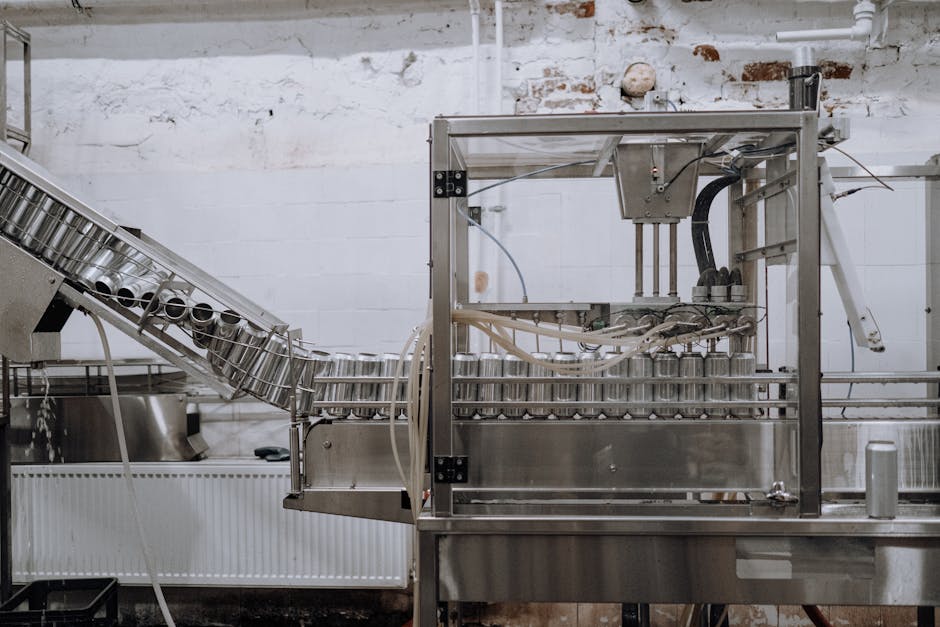When it comes to industrial injection practices, going green isn’t just a trend, it’s a necessity. In a world where sustainability is key, industries need to adopt eco-friendly practices for manufacturing. Let’s explore 10 innovative ways industrial injection processes can contribute to a greener, more sustainable future.
1. The Power of Renewable Energy Sources
Renewable energy sources, such as solar and wind power, are revolutionising the industrial injection sector. By harnessing the power of nature, manufacturers can significantly reduce their carbon footprint and energy costs. Investing in renewable energy not only benefits the environment but also brings long-term financial savings, making it a win-win for both businesses and the planet.
Additionally, utilising renewable energy can lead to a more resilient energy infrastructure, less dependence on fossil fuels, and a step towards energy independence. Embracing these sustainable energy sources is a crucial step in promoting eco-friendly practices in industrial injection processes.
2. Reducing Carbon Footprint with Efficient Technologies
Reducing carbon footprint in industrial injection involves implementing cutting-edge technologies that optimise processes and minimise waste. Advanced robotics, IoT devices, and data analytics play a pivotal role in enhancing efficiency, reducing emissions, and conserving resources.
Adopting lean manufacturing principles and investing in energy-efficient equipment are key steps towards sustainable production. By leveraging technology to streamline operations and lessen environmental impact, industrial injection facilities can achieve substantial reductions in their carbon footprint while boosting overall productivity.
3. The Importance of Responsible Waste Management
Responsible waste management is at the core of sustainable manufacturing practices within the industrial injection sector. Implementing efficient recycling programs, waste segregation protocols, and treatment systems can significantly reduce the environmental impact of manufacturing processes.
Furthermore, embracing circular economy principles by repurposing and reusing materials not only minimises waste generation but also contributes to resource conservation. Through effective waste management strategies, industrial injection facilities can minimise landfill contributions and create a closed-loop system that fosters sustainability.
4. Innovative Usage of Recycled Materials
Incorporating recycled materials into industrial injection processes presents a sustainable solution to raw material sourcing. By using recycled plastics, metals, or composites, manufacturers can reduce their reliance on virgin resources and lower their carbon emissions.
Moreover, the innovative utilisation of recycled materials not only promotes waste diversion but also showcases a commitment to environmental stewardship. Through creative material substitution and upcycling practices, industrial injection facilities can contribute to the circular economy and drive sustainable manufacturing forward.
5. Implementing Water Conservation Strategies
Water conservation is a critical aspect of eco-friendly industrial injection practices, especially in regions facing water scarcity. Implementing water-saving technologies, such as closed-loop systems, wastewater treatment, and rainwater harvesting, can lead to significant reductions in water usage and discharge.
By optimising water consumption through recycling, reuse, and process efficiency improvements, manufacturers can minimise their environmental impact and contribute to sustainable water management. Conserving water resources is not only essential for operational resilience but also underscores a commitment to responsible use of this precious resource.
6. Promoting Sustainable Supply Chain Practices
Promoting sustainable supply chain practices is crucial for ensuring the eco-friendliness of industrial injection processes. Collaborating with suppliers who adhere to environmental standards, prioritise ethical sourcing, and practice sustainable logistics helps create a more sustainable value chain.
By fostering transparency, accountability, and traceability throughout the supply chain, manufacturers can identify opportunities for eco-friendly improvements and work towards reducing the overall environmental footprint of their operations. Sustainable sourcing and responsible supply chain management are key pillars of sustainable manufacturing.
7. Harnessing the Power of Solar Energy Systems
Solar energy systems offer a clean and renewable energy solution for industrial injection facilities looking to reduce their reliance on conventional power sources. By installing solar panels, businesses can generate their electricity on-site, lower energy costs, and decrease greenhouse gas emissions.
The scalability and efficiency of solar energy make it a sustainable choice for industrial applications, providing a reliable power source while supporting environmental sustainability goals. Embracing solar energy systems not only contributes to a greener energy mix but also showcases a commitment to clean, renewable power generation.
8. Utilising Advanced Carbon Capture Technology
Advanced carbon capture technology plays a vital role in mitigating emissions from industrial injection processes. By capturing and storing carbon dioxide emissions before they enter the atmosphere, manufacturers can reduce their carbon footprint and combat climate change.
Incorporating carbon capture systems alongside manufacturing operations ensures a more sustainable approach to emissions management, paving the way for cleaner air quality and enhanced environmental stewardship. Investing in advanced carbon capture technology is a proactive step towards achieving carbon neutrality and sustainable manufacturing practices.
9. The Role of Green Chemistry in Industrial Processes
Green chemistry principles offer a framework for developing eco-friendly formulations and processes within the industrial injection sector. By designing products with reduced toxicity, waste, and energy consumption, manufacturers can minimise their environmental impact while enhancing product safety and performance.
Integrating green chemistry practices into industrial injection processes highlights a commitment to sustainability, innovation, and health-conscious manufacturing. By prioritising the use of renewable feedstocks, benign solvents, and energy-efficient reactions, companies can align their operations with greener chemistry practices and drive positive environmental change.
10. Ensuring Sustainable Manufacturing Practices
Ensuring sustainable manufacturing practices in the industrial injection sector requires a holistic approach that considers environmental, social, and economic impacts. Implementing eco-friendly policies, conducting life cycle assessments, and engaging stakeholders in sustainability initiatives are essential components of sustainable manufacturing.
By prioritising resource efficiency, emissions reduction, and social responsibility, industrial injection facilities can establish a foundation for sustainable growth and resilience. Embracing a sustainability mindset across all aspects of manufacturing operations underscores a commitment to long-term viability and environmental stewardship.


